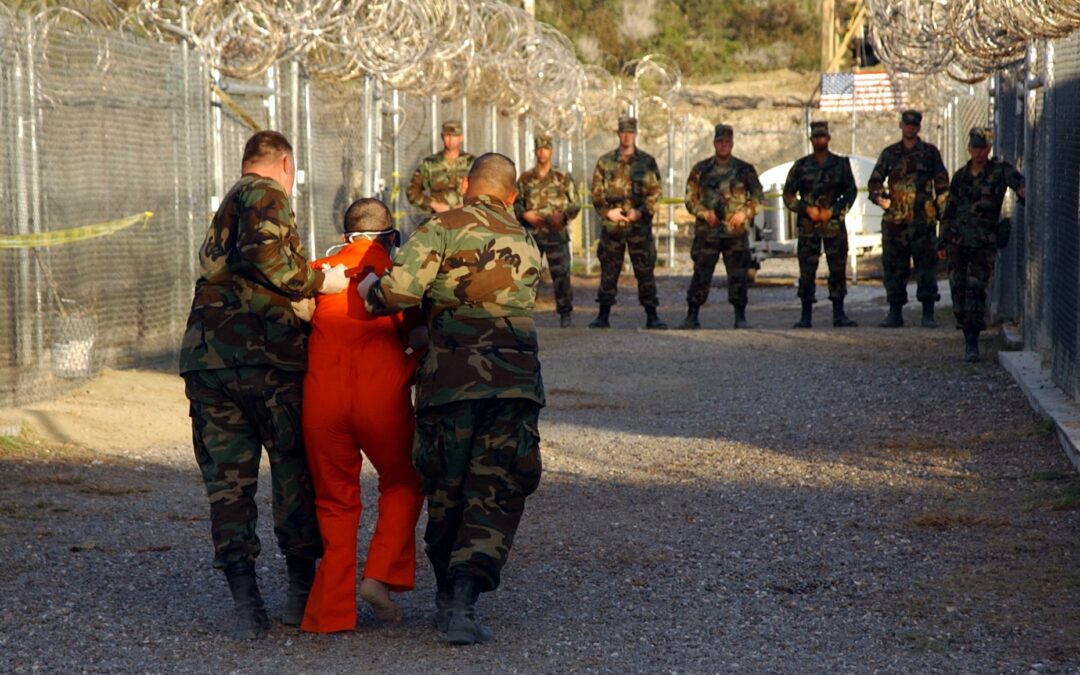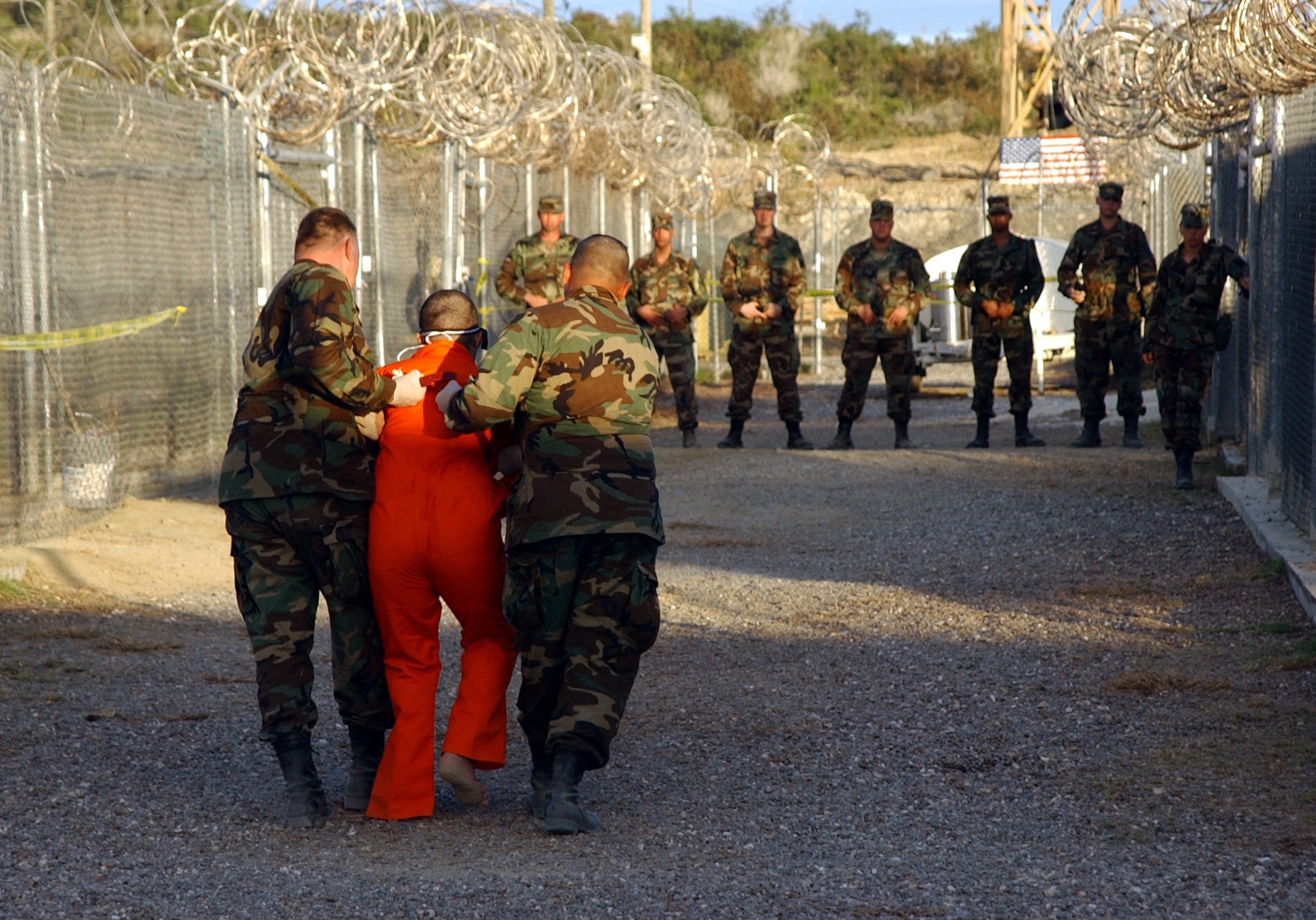
Jul 21, 2014 | News
From Monday 21 July the Court of Appeal will hear the case of Abdul-Hakim Belhaj and Other v. Jack Straw & Others.
It involves a damages claim by a Libyan couple against former and current UK officials for their alleged complicity in the claimants’ torture and illegal transfer to Libya’s Gaddafi regime.
The ICJ, Amnesty International, JUSTICE and REDRESS intervened jointly in this case, which may set an important precedent for future claims brought by torture victims.
The full press release can be downloaded here:
UK-Belhaj Rendition case-news-press release-2014 (full text in pdf)

Feb 17, 2014 | News
The ICJ today expressed concern at a ruling of the Italian Constitutional Court which denies full accountability of Italian officials in the case of the 2003 unlawful rendition, enforced disappearance and torture of Osama Mustafa Hassan Nasr, also known as Abu Omar.
In a ruling making no mention of the international human rights law obligations of Italy, the Court agreed with the contention of the Italian Government that it may protect from disclosure and use in court what it considers to be “secrets of state” even if to do so would prevent the revelation of the truth about serious crimes and human rights violations and the holding of those responsible to account.
The Court ruled that, under the Italian Constitution and the law on secrets of state, it is the sole prerogative of the President of the Council of Ministers, exercising “a wide discretionary power”, to establish the width of application of the secret of state doctrine.
The Court affirmed that such decisions cannot be questioned by ordinary courts.
A number of Italian and United States intelligence agents, including the former Director of the Italian Military Secret Service, Nicolò Pollari, had been found guilty of criminal offences in connection with the rendition.
The Constitutional Court’s ruling is likely to effectively annul the convictions of the top Italian secret agents involved in the rendition.
“This ruling constitutes a serious blow to the fight against impunity for some of the most serious crimes under international law”, said Massimo Frigo, Legal Adviser for the Europe Programme. “It disregards fundamental pillars of international human rights law, including the right to truth and the duty to investigate, prosecute and ensure accountability for gross violations of human rights”.
“The doctrine of “secret of state” must never be used as a means to cover up responsibility for crimes under international law or gross violations of human rights,” Frigo added. “The United States, which is primarily responsible, deplorably has abdicated its responsibility to meaningfully investigate and hold officials to account for gross human rights violations in its rendition and secret detention programme. Italy, by contrast, had been the only country in which the courts had imposed convictions for the US-led renditions. After this judgment, there is a real risk that the Italian complicity in this crime will never be fully ascertained and accounted for.”
The ICJ is concerned at reports that time limits for the conclusion of criminal proceedings in this case could expire in two months, despite the fact that, under international standards, limitation periods should not be imposed in respect of serious of crimes such as torture and enforced disappearance.
The expiry may foreclose any further investigation or criminal trial on Italian involvement in this rendition, which should occur irrespective the obstacles caused by the secret of state doctrine.
The ICJ is particularly concerned that successive Italian governments since 2007 have either proposed or refused to withdraw government applications before the Constitutional Court affirming that the executive prerogative on secret of state takes precedence over the fight against impunity.
The ICJ considers that the law and practice regarding the “secret of state” must be reformed to be into compliance with Italy’s duty to investigate crimes under international law and gross human rights violations.
While States may protected a limited amount of information when strictly necessary for legitimate national security purposes, they may not do so with respect to information concerning gross violations of human rights.
Background
Hassan Mustafa Osama Nasr, also known as Abu Omar, was been kidnapped in 2003 in the streets of Milan by CIA operatives and subject to rendition to Egypt where he had been subject to enforced disappearance, arbitrary detention and torture.
The case of Abu Omar was one of at least 136 known cases in the rendition and secret detention carried out since 2001 by the United States, with the participation of some 54 other States, which typically involved multiple human rights violations, including torture and ill-treatment, enforced disappearance, and arbitrary detention.
The Constitutional Court judgment effectively reversed the ruling of the Court of Cassation that ordered the reopening of the trial against the former Director of the Italian Military Secret Service, Nicolò Pollari, his deputy, Marci Mancini, and other Italian military secret services operatives for their alleged complicity in the operation.
The Court of Cassation had held that the doctrine of “secret of state”, which barred their conviction, would not apply to them, because the Italian secret services have no authority to conduct such illegal operations and they had therefore effectively acted in private capacity.
Following that judgment, the Court of Appeal convicted, among others, for complicity in the kidnapping Nicolò Pollari to ten years of imprisonment and Marco Mancini to nine years.
The Court of Cassation upheld in absentia the convictions and sentences of 23 US agents involved for the offence of kidnapping.
On 5 April 2013, the President of the Italian Republic, Giorgio Napolitano, granted a pardon for US Colonel Joseph L. Romano III, who had been convicted by Italian courts of the offence of complicity with the US in kidnapping for his role in the rendition of the Milan cleric Abu Omar in 2003.
Contact:
Massimo Frigo, Legal Adviser, ICJ Europe Programme, massimo.frigo(a)icj.org

Apr 23, 2013 | Advocacy, Cases, Legal submissions
 The ICJ and Amnesty International presented a third party intervention in the case Abu Zubaydah v. Lithuania before the European Court of Human Rights.
The ICJ and Amnesty International presented a third party intervention in the case Abu Zubaydah v. Lithuania before the European Court of Human Rights.
In the third party intervention, the ICJ and AI outlined developments on the knowledge imputable to Contracting Parties at relevant times; on the obligations attached to principle of non-refoulement; on the duty to investigate credible allegations of human rights violations and other procedural obligations; and on the human rights violations that detainees previously held in the USA’s secret detention and rendition programmes are currently enduring.
Abu_Zubaydah_v_Lithuania-ICJAIJointSubmission-ECtHR-final (download the third party intervention)

Apr 8, 2013 | News
 The ICJ today expressed its deep concern at the decision of the President of the Republic of Italy to pardon Colonel Joseph L. Romano III, following his conviction by an Italian court for complicity in the rendition of Osama Moustafa Hassan Nasr, also known as Abu Omar (photo).
The ICJ today expressed its deep concern at the decision of the President of the Republic of Italy to pardon Colonel Joseph L. Romano III, following his conviction by an Italian court for complicity in the rendition of Osama Moustafa Hassan Nasr, also known as Abu Omar (photo).
“This pardon deals a serious blow to the rule of law and to accountability for CIA renditions and secret detentions, a system which involved torture, enforced disappearances, arbitrary and secret detention and other serious crimes under international law,” said Massimo Frigo, Legal Adviser with the ICJ Europe Programme. “Italy stood honourably as the only country where an effective prosecution had been brought against CIA and Italian agents responsible for crimes under international law committed through the CIA rendition programme. This pardon deletes, in a single stroke of the pen, years of relentless efforts of prosecutors, investigators and lawyers to assure accountability for these crimes under international law.”
The ICJ emphasized that the pardon granted by the Italian President of the Republic, Giorgio Napolitano, in his last weeks of office, defeats the efforts of the judiciary to uphold the State’s international law obligations to investigate, prosecute and bring to justice those responsible for gross violations of human rights.
“By nullifying the effects of years of efforts of the Italian judicial system, this pardon seriously undermines Italy’s action against impunity and weakens the very foundations of the rule of law,” Frigo added. “The fact that the President of the Republic justified this action by raising the “peculiarity of the historical moment” of 9/11, thus suggesting that a kind of state of exception for the rule of law could have existed, is an unacceptable position under international law.”
The ICJ deeply regrets this decision of the President of the Republic to use his prerogative of pardon to prevent accountability for such an egregious violation of the rule of law in name of US-Italian diplomatic relations.
The ICJ condemns this pardon and stresses that it must not constitute a precedent and that other convictions in this case must not be nullified by pardons or amnesties. All European countries must uphold their duty fight against impunity for gross violations of human rights.
Any further circumvention of accountability for perpetrators of renditions or other gross human rights violations would only extend the cloak of impunity over the rule of law in Europe.
Contact:
Massimo Frigo, Legal Adviser, ICJ Europe Programme, massimo.frigo(a)icj.org
PR-Italy-RenditionPardon-2013-eng (english version)
PR-Italy-RenditionPardon-2013-ita (italian version)

Mar 18, 2013 | Advocacy, Cases, Legal submissions
 The ICJ and Amnesty International presented a third party intervention in the case Al Nashiri v Romania before the European Court of Human Rights.
The ICJ and Amnesty International presented a third party intervention in the case Al Nashiri v Romania before the European Court of Human Rights.
In the third party intervention, the ICJ and AI outlined developments on the prohibition of arbitrary deprivation of liberty as a rule of customary international law; on the knowledge imputable to Contracting Parties at relevant times; on the duty to investigate credible allegations of human rights violations and the right to truth; and on the evidential approach to enforced disappearances.
AlNashiri_v_Romania-ICJAIJointSubmission-ECtHR-final (download the third party intervention











